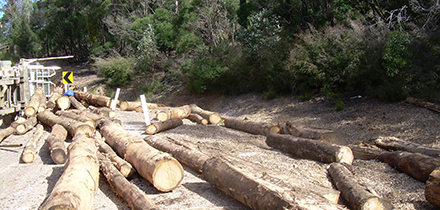The Professional Ownership & Driver Wellbeing Program is back encompassing not just the PODW program but also the ‘Rollover’ Program to present a complete and comprehensive training package designed for ‘best practice’ across the whole transport industry as well as non-transport industries. Source: Timberbiz
The Australian Forest Contractors Association (AFCA) has again engaged Alan Pincott, from Australian Trucking Safety Services & Solutions and Kirstin Pincott, KJ Training & Consulting, to present the new Professional Freight Task Management program.
Program selections will include a choice of either half or full day courses designed by the facilitators based on individual company requirements. Cost will depend on location and numbers required.
The program will include:
- Understanding our industry’s vehicle crashes
- Heavy vehicle national law; Chapter 1A safety duty
- Chain of Responsibility (26C) Primary duty
- Alcohol and other drugs
- Sleep cycles and sleep hygiene
- Attention, concentration and the tricks your mind plays
- How to respond to an accident
- Trip planning
- Creating awareness, engagement & working as an industry
- Understanding crashes & rollovers
- What happens when a truck rolls
- Why they roll & the forces involved
- Understanding your vehicle, your load & your industry
- Where trucks roll and identifying high risk locations
- EBS technology
- The human factor
- Practical solutions.
The PODW program was developed by ATSSS and KJ Training and Consulting to address the ‘human factor’: fatigue, inattention and complacency, which are the underlying causes of several recent crashes in heavy and light vehicles in the forest industry.
PODW guides drivers to adopt a proactive, intrinsically motivated view of solutions to driving challenges.
Focusing on an overview of COR legislation, introduction to driver wellbeing (alcohol and other drug use, sleep and fatigue), situational awareness introduction to driver safety (attention and concentration, trip planning, how to respond to an accident and effects of trauma).
The objective of the PODW program is to empower drivers to take control of the factors which place them at higher risk of a crash, recognising that professional drivers are at higher risk of crashes or accidents due to the nature of their work.
The program is run in an interactive manner with mixed media presentations aimed to engage drivers, encourage discussion and participation, and provide practical advice and solutions for low-risk driving.
It explores when drivers are at higher risk of a crash or incident, hypothesise the reasoning behind these incidents, and provide simple tips and tricks to maintain concentration and attention.
This program aligns with new Chain of Responsibility laws and can be an important part of a Safety Management System.
This program is face-to-face and takes two hours to deliver. The key to this session is creating engagement by providing awareness.
The program is an extension of the successful VicRoads Heavy Vehicle Rollover Program. It takes the experience of many people from many parts of the transport industry and seeks to provide the participants extensive awareness and knowledge about what happens when a truck rolls and why.
By starting with an in-depth investigation of an actual rollover it covers in very simple terms, the complex nature of a rollover and takes the audience through an interactive presentation about the physics involved.
The team explains how centrifugal force, centre of gravity, speed and dynamic forces can act on a prime mover and its trailers to a point where the driver is unable to avoid the rollover. Illustrated with diagrams, truck models and interaction with the audience the messages on how a rollover occurs is clear.
The program also provides insight into freight task management. This is an exciting part of the program which ties together the information of the presentation for practical application.
The organisers work with the companies to plan the best approach to build on the outcomes of the program and the human capital invested by each company in attending the presentation.
Alan Pincott has had many years of experience in a variety of roles in the heavy transport industry. He is a qualified heavy vehicle mechanic and former VicRoads heavy vehicle instructor and licence tester. He has 18 years’ experience as an on-road Regulatory & Compliance Officer in country Victoria with extensive experience in crash investigation. Alan has a passion for road safety and stakeholder engagement and education.
Alan is an experienced presenter and facilitator and understands that the key to success for effective road safety outcomes is industry engagement, and has the credibility, skills and understanding on how to develop and deliver programs to ensure that this engagement is successful.
Kirstin Pincott has a background in mental health, alcohol and other drugs, and health care social work. She was an accredited lead facilitator for the VicRoads Safe Driving Program, and an accredited member of the Australian Association for Social Workers.
Kirstin works in strong collaboration with Alan Pincott of ATSSS, often combining their skillsets to deliver a comprehensive training package involving the external factors such as road conditions and changes in load, and the internal factors such as fatigue and concentration that influence truck rollovers and crashes. Alan and Kirstin have been running the above program to truck drivers since the beginning of 2017 across Victoria, Western Australia, Tasmania, Queensland and South Australia.
Kirstin is currently contracted to provide mental health and wellbeing support to contractors and staff affected by the Victorian Forestry Plan, and the impacts of the proposed end to native timber harvesting in Victoria.
For more information on attending one of the sessions or should you be interested in booking a session for your company please email [email protected]






